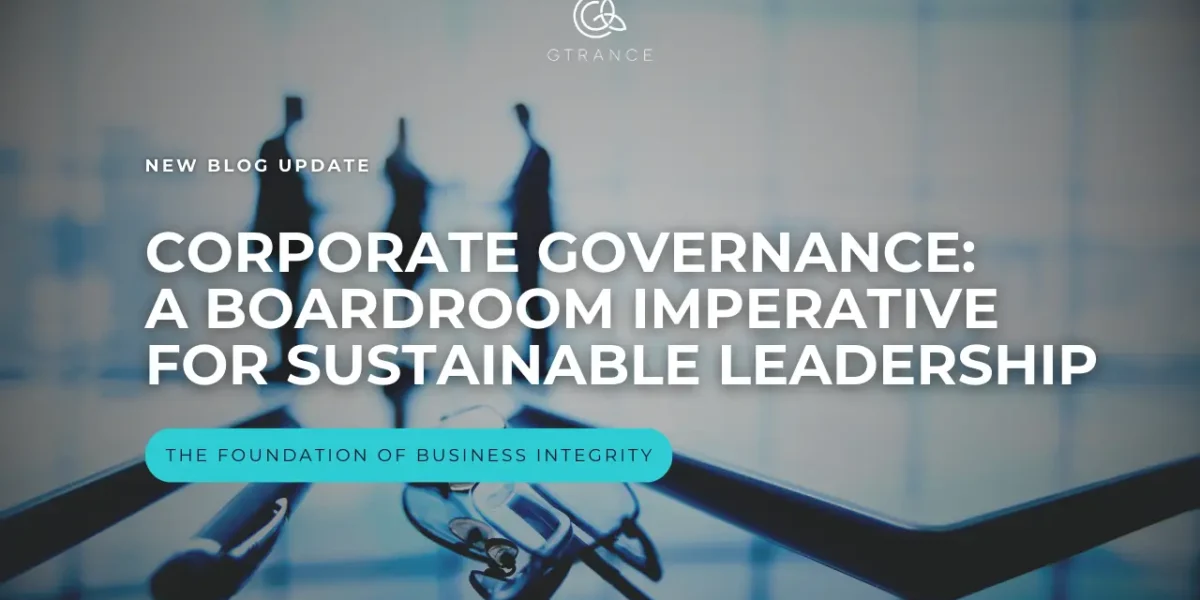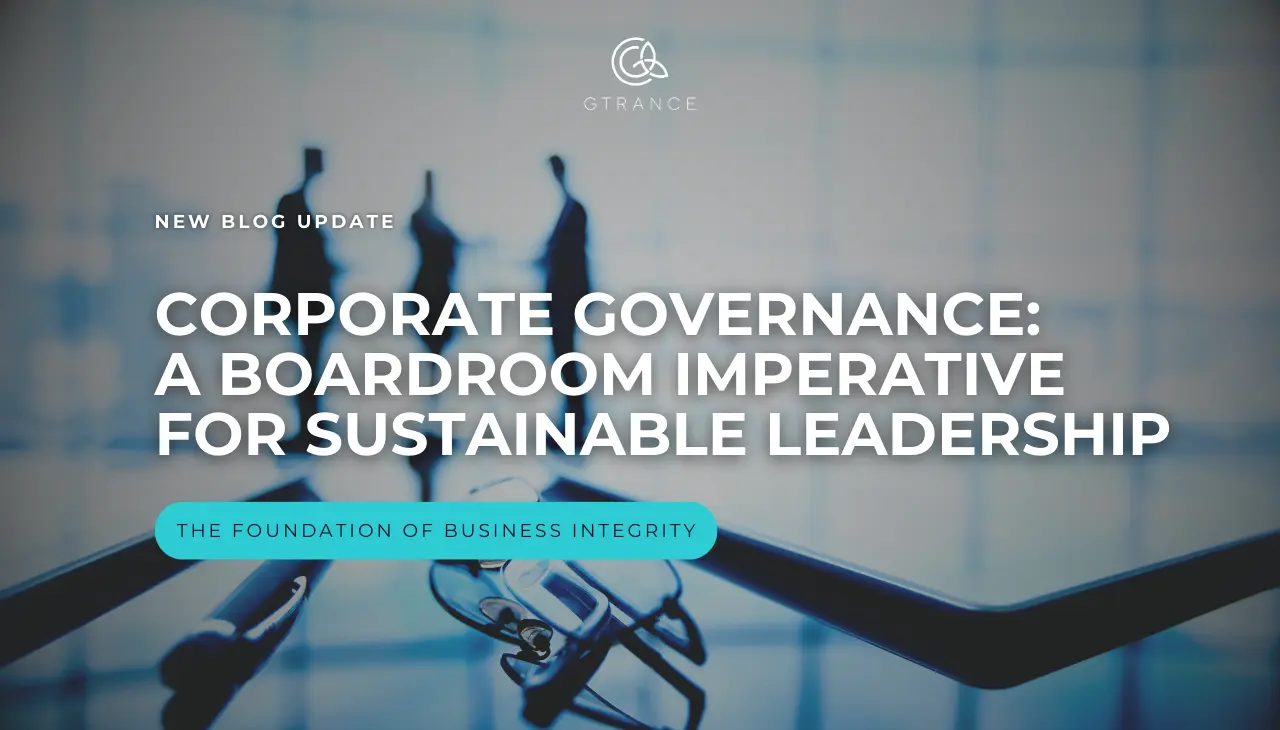
As an Attorney at Law, Chartered Governance Professional, and Certified Board Director, I have come to view corporate governance as more than a framework of compliance, it is the very foundation of sustainable corporate leadership. In today’s environment of heightened scrutiny, digital disruption, and complex stakeholder demands, governance has become the board’s most critical tool to balance opportunity with responsibility.
Boards today are no longer judged only on financial results. They are expected to provide ethical leadership, anticipate risks, and steward the organization in a way that builds resilience and long-term value. In this context, governance is both shield and compass: protecting companies from pitfalls while guiding them toward sustainable growth.
Governance as the Board’s Strategic Compass
At its heart, governance is the structure that allows directors to discharge their fiduciary duties with clarity and accountability. The most effective boards steward four critical pillars:
- Board Oversight: The board must be more than a ceremonial body. Directors are responsible for ensuring strategy aligns with purpose, performance aligns with accountability, and management remains within ethical and legal boundaries. Independence, diversity, and skill mix are crucial to effective board function.
- Shareholder Engagement: Shareholders today are more active, vocal, and demanding. From proxy battles to activist campaigns, boards must balance shareholder rights with long-term corporate vision, ensuring alignment and proactive communication.
- Executive Management Accountability: While management drives operations, boards set the tone at the top. They must monitor leadership performance, succession planning, and cultural alignment albeit intervening decisively when strategy or conduct threatens corporate health.
- Risk, Controls, and Compliance: From cyberattacks to regulatory changes, risks are multifaceted. Strong governance ensures systems are in place to safeguard assets, anticipate threats, and comply with evolving laws across multiple jurisdictions.
The Modern Boardroom: Challenges Redefining Governance
The governance landscape today is shaped by real-world challenges that demand board agility and foresight:
- Digital Transformation & Cybersecurity: Boards must grapple with disruptive technologies, data privacy laws, and rising cyber risks. Cybersecurity is no longer an IT issue; it is a governance issue with reputational and financial consequences.
- ESG and Sustainability Pressures: Environmental, Social, and Governance (ESG) metrics are now front and center. Regulators, investors, and communities demand evidence of sustainability commitments. Boards that treat ESG as a “box-ticking exercise” risk falling behind; those that integrate ESG into strategy create lasting competitive advantage.
- Shareholder Activism: Activist investors are increasingly shaping board agendas, pushing for governance reforms, sustainability targets, and operational changes. Directors must anticipate activism and engage stakeholders with transparency before conflicts escalate.
- Regulatory Complexity: With global operations comes a patchwork of compliance regimes, including but not limited to, data protection laws, anti-bribery statutes, tax transparency frameworks, and more. Boards are expected to understand and oversee compliance with a lens on both local laws and international standards.
- Reputation and Social License to Operate: In the digital age, reputational crises can unfold within hours. A single wrong step in ethics, diversity, labor practices, or environmental responsibility can damage decades of goodwill. Governance is the safeguard that ensures preparedness and resilience.
Ethics and Integrity: The Board’s Duty
A governance framework without ethics is hollow. Directors today are being held accountable not only for financial oversight but also for the company’s broader impact on society and the environment.
Boards must embed integrity into decision-making by:
- Ensuring corporate culture reflects stated values.
- Setting clear expectations around CSR, diversity, equity, and inclusion.
- Demanding transparent reporting on ESG and sustainability metrics.
- Taking proactive stances on ethical dilemmas, rather than waiting for crises.
A board that champions’ integrity promotes stakeholder trust. A board that ignores it risks regulatory penalties, litigation, and reputational damage.
The Stakeholder Lens
Every board decision echoes across stakeholder groups:
- Shareholders expect long-term value, transparency, and stewardship.
- Employees depend on boards to enforce fair practices, safe workplaces, and career pathways.
- Customers demand accountability for quality, data privacy, and ethical sourcing.
- Communities look to corporations for sustainability commitments and responsible citizenship.
Boards must move beyond a shareholder-centric view and embrace a multi-stakeholder governance model.
Personal Reflections from the Boardroom
In today’s global boardrooms, governance is not static, it is dynamic, evolving, and indispensable. Boards that excel in governance do not view it as a compliance burden, but as a strategic advantage.
From my perspective as both a governance professional and board director, I believe the boards of the future will be defined by their ability to:
- Integrate governance into digital and ESG strategies.
- Anticipate shareholder activism and respond with transparency.
- Embrace diversity of thought, expertise, and culture at the board level.
- Champion ethics, integrity, and accountability at every turn.
Strong corporate governance is not optional. It is the hallmark of credible boards, resilient organizations, and sustainable business ecosystems. In a world where scrutiny is constant and expectations are rising, governance remains the board’s greatest responsibility, and its greatest opportunity.
©2025 Grace El Tayar
